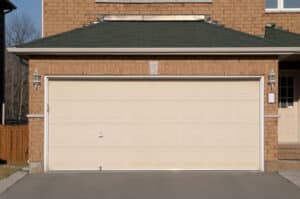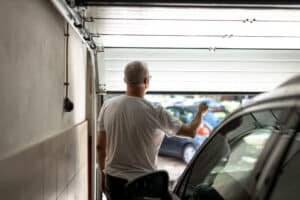How Does the Humidity in Parker Impact My Garage Door?
Humidity can affect garage doors in Parker in several ways, and these problems often build up over time. Early signs might not be obvious, but long-term exposure to moisture can cause wood to swell, promote rust on metal parts, and affect how the door works overall. If your garage door starts to stick, squeak, or refuse to open and close smoothly, humidity might be a contributing factor.
At Select Garage Doors, we have worked with all types of garage doors and have seen firsthand the results of prolonged humidity. Understanding exactly how moisture impacts different garage door materials and components can help you prevent more expensive repairs.
If you notice these problems or want to help your garage door last longer despite the humidity, contact us today!
Key Takeaways
- Humidity in Parker can cause wood to swell, metal to rust, and garage doors to malfunction.
- Regular inspection and maintenance prevent expensive damage and keep doors working smoothly.
- Weatherstripping, bottom seals, and proper ventilation help protect your garage door from moisture.
- Prompt repairs and professional help from Select Garage Doors keep your door reliable and safe.
- A proactive approach extends the lifespan of your garage door and helps you avoid costly repairs.
Effects of Humidity on Garage Doors
Humidity causes more than just discomfort. It can lead to a range of issues for garage doors, each with specific reasons and solutions.
1. Rust on Metal Parts
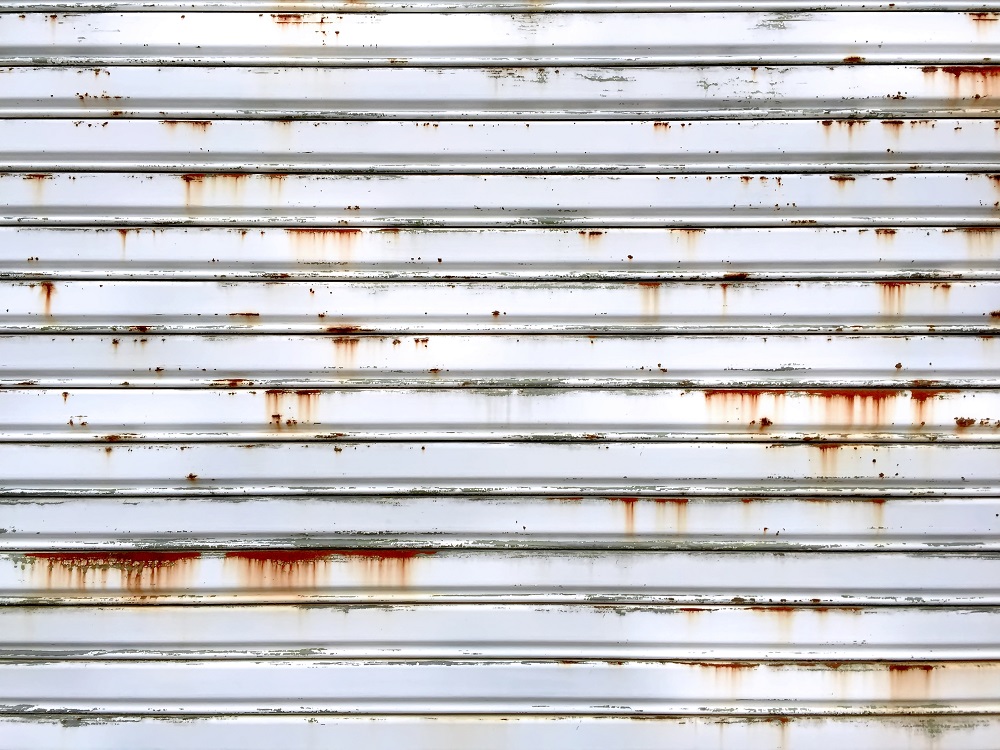
Steel and aluminum doors are often coated with protective finishes, but these coatings can wear away or become damaged. Regular inspection and occasional lubrication using products suitable for garage doors can help prevent or slow rust.
2. Warping of Wooden Doors
Wooden garage doors are particularly sensitive to changes in moisture. Wood absorbs water from the air, and this swelling can make the door hard to open or close. When humidity decreases, the wood can contract again, which over time may cause cracks or even permanent warping.
Mold and mildew can also grow on wood if it stays damp. Using weather-resistant paints or sealants on wood surfaces can limit water absorption, but these coatings must be maintained.
3. Swelling of Composite Materials
Many garage doors today are made from composite materials, which usually combine wood fibers with resins or plastics. While these doors resist moisture better than solid wood, high humidity can still cause them to expand.
These expansions may affect the fit of the door in its frame and cause misalignment. Choosing high-quality, moisture-resistant composite doors and maintaining weather seals can help manage this issue.
4. Insulation Problems
Insulated garage doors help with temperature control, but if moisture seeps in through damaged seals, the insulation can become wet. Wet insulation loses its ability to resist heat transfer, meaning your garage may become warmer in the summer and colder in the winter.
Such conditions can also lead to higher energy costs if your garage is attached to your home. Regularly checking and replacing worn or cracked weatherstripping keeps moisture out.
5. Paint and Finish Peeling
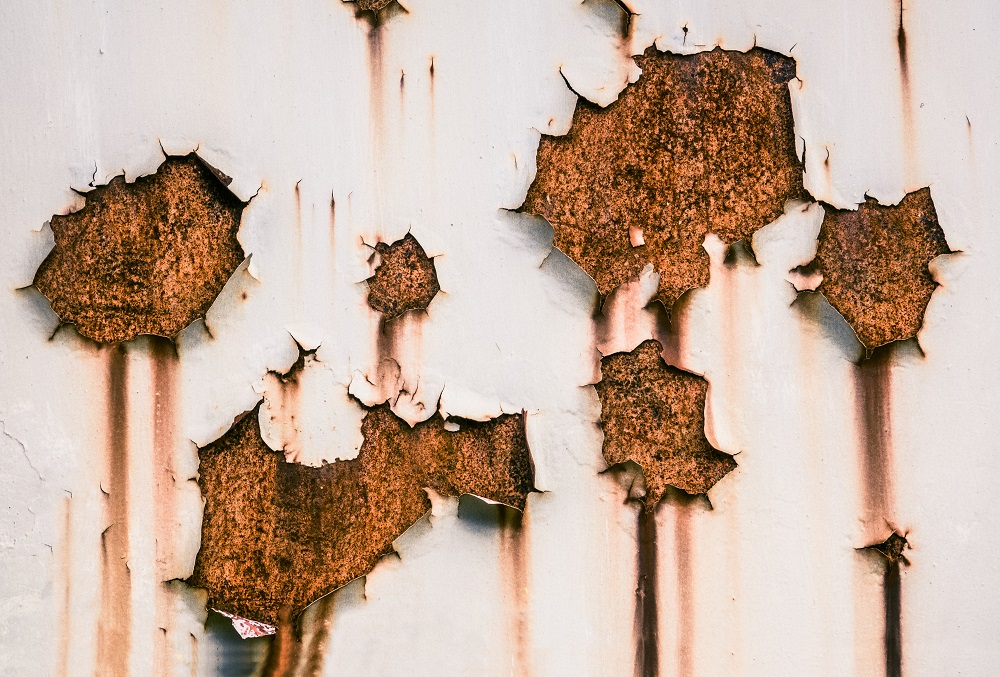
Using paints and coatings specifically designed for exterior use in humid climates provides longer-lasting protection, but all finishes need periodic maintenance.
6. Electronic Component Issues
Garage doors often have electronic features such as openers, wall-mounted controls, and safety sensors. Although the elements generally protect these parts, problems can still arise due to high humidity or condensation.
- Safety Sensors: If condensation forms on sensor lenses, the sensors may not work correctly. This could cause the door to refuse to close or reverse unexpectedly.
- Garage Door Opener Circuit Boards: Humidity can cause corrosion on the electronic circuit boards inside openers, leading to malfunctions.
- Wall Controls: Moisture can get inside control panels and cause electrical shorts, making buttons stick or stop working.
First Defense: Weatherstripping and Bottom Seals
Weatherstripping and bottom seals block moisture, dirt, and pests from getting inside your garage. Materials like rubber, vinyl, and silicone are commonly used for their durability and resistance to moisture. Seals will not last forever.
They should be checked at least twice a year for signs of cracking or flattening. Replacing worn weatherstripping keeps your garage door working as intended and helps prevent moisture problems.
Bottom seals are especially important because water tends to pool at ground level. If water is making its way into your garage, replacing or upgrading the bottom seal often solves the problem.
Practical Tips to Prevent Humidity Damage
Some simple habits can help keep humidity from damaging your garage door.
Ventilate Your Garage: Good airflow helps lower humidity. Install vents, use fans, or open your garage door briefly when it is not raining.
- Use a Dehumidifier: If your garage feels damp, a dehumidifier can lower moisture levels. Choose one that matches the size of your garage, and use a humidity gauge to monitor conditions. Most experts recommend keeping garage humidity between 30 percent and 50 percent if possible.
- Maintain Protective Coatings: Keep paint, sealant, or varnish in excellent shape. Use products made for exterior use and reapply as directed by the manufacturer.
- Routine Maintenance: Wipe down your door and hardware every few months. Lubricate moving parts with garage door-safe products. Check sensors and openers regularly to make sure they are working.
When to Call a Pro
While you can handle many maintenance tasks yourself, it is a good idea to call professionals if your door becomes hard to open, sticks badly, or you notice persistent electrical issues.
Licensed technicians can safely address electrical problems, realign tracks, replace hardware, and help you choose the right solutions for Parker’s climate.
Keep Your Garage Door Protected
Humidity is common in Parker, but that does not mean garage door damage is unavoidable. With regular checks, good habits, and help from us at Select Garage Doors when needed, you can make sure your garage door lasts as long as possible and works reliably.
If you have questions or want help with your garage door, call us today! Our team is always available to help you keep your garage door in top condition, whatever the weather may bring.
REQUEST A QUOTE
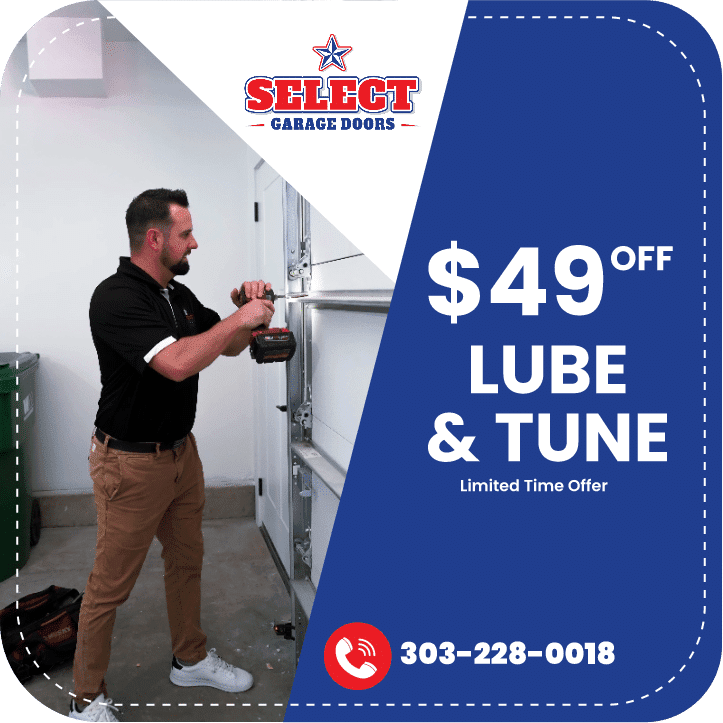
Our Services
Service Areas
Service Areas
WE SERVICE COLORADO SPRINGS, PARKER, LAKEWOOD AND SURROUNDING AREAS


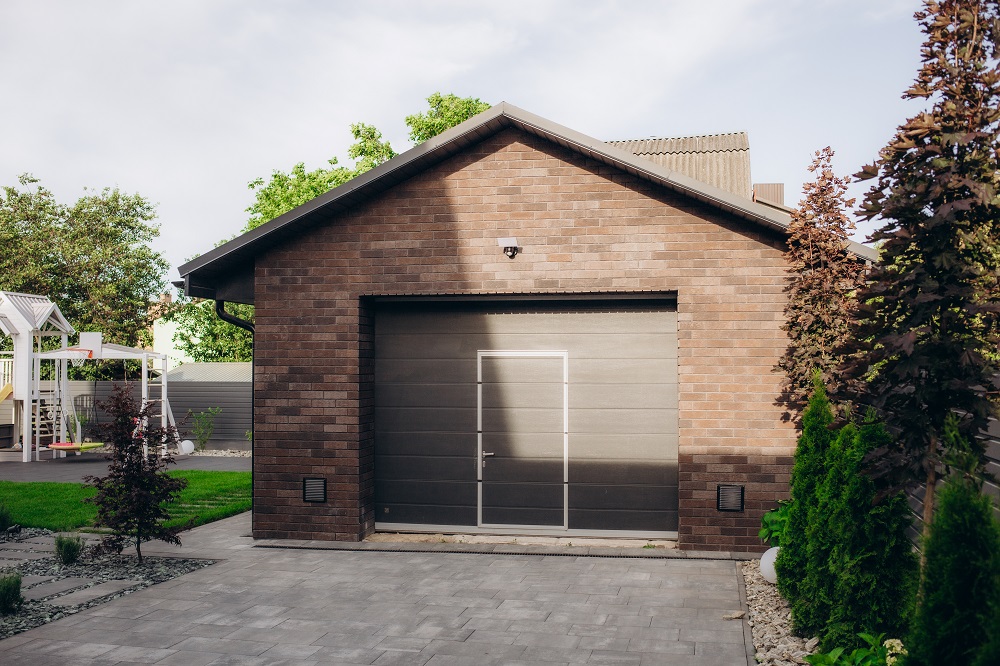 Ventilate Your Garage: Good airflow helps lower humidity. Install vents, use fans, or open your garage door briefly when it is not raining.
Ventilate Your Garage: Good airflow helps lower humidity. Install vents, use fans, or open your garage door briefly when it is not raining.